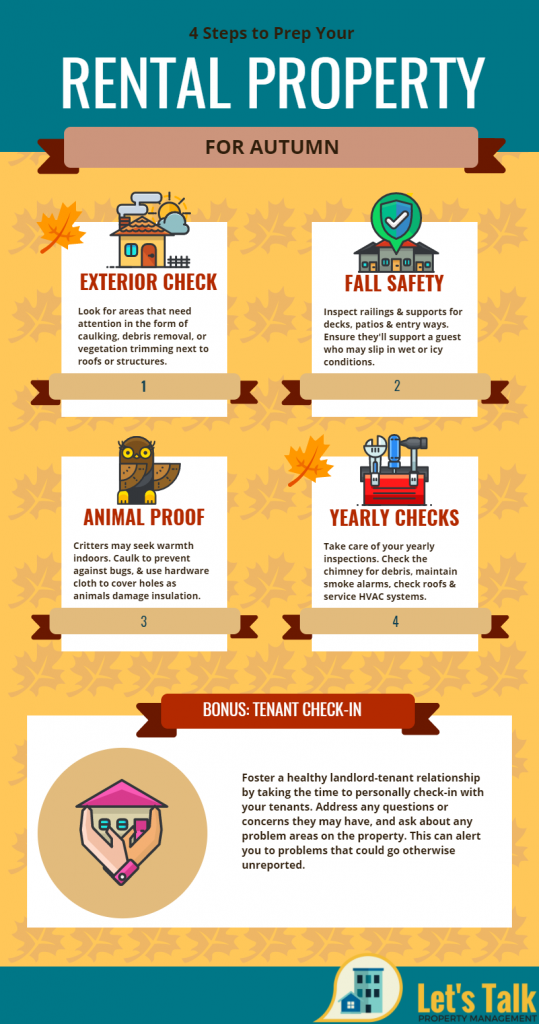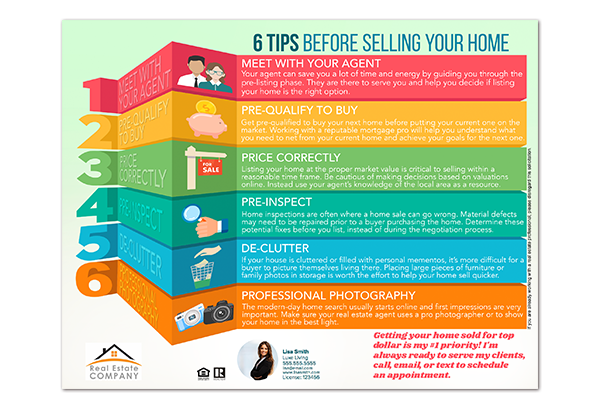Discover the secrets to successful property management with these expert tips that will revolutionize the way you manage properties.

Image courtesy of George Becker via Pexels
Table of Contents
- Introduction to Property Management
- Key Responsibilities of a Property Manager
- Effective Communication
- Maintenance and Upkeep Strategy
- Financial Management Skills
- Understanding Legal Regulations
- Tenant Relations and Retention
- Using Technology in Property Management
- Marketing Your Properties Effectively
- Continued Education and Professional Growth
- Summary and Takeaways
- Frequently Asked Questions (FAQs)
Introduction to Property Management
property management strategies and professional property manager advice play a crucial role in ensuring that properties are well taken care of and profitable. In this section, we will delve into what property management entails and why having solid strategies in place is essential for success in this field.
What is Property Management?
Property management involves overseeing and maintaining real estate properties on behalf of the owners. A property manager is responsible for a wide range of tasks, including managing rentals, handling maintenance and repairs, screening tenants, and ensuring that the property operates smoothly.
Property managers can work with various types of properties, such as residential buildings, commercial spaces, vacation rentals, or even industrial properties. Each type of property comes with its own set of challenges and responsibilities that a property manager must address.
Why Strategy Matters
Having effective property management strategies in place is essential for ensuring that properties are well-maintained, tenants are happy, and profits are maximized. Without a clear plan and strategy, property managers may struggle to juggle the various responsibilities that come with managing properties.
Good strategies can help property managers stay organized, prioritize tasks, and make informed decisions about how to best handle different situations that may arise. By implementing sound management strategies, property managers can set themselves up for success and create a positive experience for both owners and tenants.
Key Responsibilities of a Property Manager
As a property manager, you have several key responsibilities to ensure that the property you oversee runs smoothly. One of the main tasks you will handle on a day-to-day basis is maintenance. This includes making sure that the property is well-kept, addressing any repairs or issues that arise promptly, and coordinating with maintenance staff or contractors to get the job done efficiently.
Long-term Planning
In addition to handling daily tasks, it’s essential for a property manager to engage in long-term planning. This involves looking ahead and strategizing for the future of the property you manage. Whether it’s forecasting upcoming maintenance needs, planning for renovations or improvements, or developing strategies to attract and retain tenants, long-term planning is crucial for the success of the property.
Effective Communication
effective communication is key when it comes to being a successful property manager. When interacting with tenants, it’s important to be clear, respectful, and timely. Always listen to their concerns and address them promptly. Whether it’s handling maintenance issues, collecting rent, or simply checking in, make sure you maintain open lines of communication with your tenants. By building a positive relationship based on good communication, you can foster trust and cooperation, making your job as a property manager much smoother.

Image courtesy of therealestatetrainer.com via Google Images
With Owners and Contractors
Communicating effectively with property owners and contractors is also crucial for managing properties efficiently. Keep the property owners informed about any updates, vacancies, or financial matters related to their properties. When working with contractors for maintenance or repairs, clearly outline the scope of work, budget, and timeline for completion. Professional and transparent communication with all parties involved will build trust and lead to successful outcomes for your properties.
Maintenance and Upkeep Strategy
Keeping a property in top shape is vital for property managers. By implementing a solid maintenance and upkeep strategy, you can prevent costly issues and keep tenants happy. Here are some key practices to consider:
Regular Inspections
It’s important to conduct regular inspections of the property to catch any potential issues early on. Schedule inspections on a recurring basis to ensure everything is in working order. Look for signs of wear and tear, leaks, or damage that may need attention.
Preventive Maintenance
One of the best ways to avoid major problems is through preventive maintenance. This means staying proactive in caring for the property. Regularly servicing HVAC systems, checking for water leaks, and maintaining the landscaping can all contribute to the property’s overall health and longevity.
Financial Management Skills
Good financial management skills are crucial for property managers to effectively handle the financial aspects of the properties they oversee. Let’s dive into some key skills that can help property managers navigate the financial side of property management.

Image courtesy of www.rentecdirect.com via Google Images
Budgeting
Creating a budget is like making a plan for how you will spend the money for the property. It’s important to think about all the expenses the property might have, like maintenance, repairs, and utilities, and make sure there is enough money set aside to cover these costs. By sticking to a budget, property managers can avoid overspending and ensure that the property’s finances stay on track.
Rent Collection
Collecting rent from tenants is a critical part of financial management for property managers. It’s important to have a clear system in place for when rent is due, how it should be paid, and what the consequences are for late payments. By setting clear expectations and communicating effectively with tenants about rent collection, property managers can ensure a steady cash flow to cover expenses and maintain the property.
Understanding Legal Regulations
legal regulations play a critical role in property management. Property managers need to have a good understanding of local, state, and federal laws to ensure they operate within the legal boundaries. Let’s delve into why knowledge of legal regulations is paramount in property management.
Housing Laws
One of the fundamental aspects of property management is abiding by housing laws. These laws govern various aspects of property ownership and renting, including tenant rights, property maintenance standards, and eviction procedures. Property managers must adhere to these laws to protect both the tenants’ rights and the property owner’s interests.
Staying Updated on Legal Changes
Property management laws are subject to change, and it’s crucial for property managers to stay informed about any legal developments. By staying updated on legal changes, property managers can adapt their practices to remain compliant and avoid potential legal issues. Regularly reviewing legal updates and participating in continuing education can help property managers stay abreast of any new regulations.
| Tips | Description |
|---|---|
| 1. Communication | Effective communication with tenants, owners, and maintenance staff is key to successful property management. |
| 2. Organization | Stay organized with leases, maintenance schedules, and financial records to avoid any confusion or disputes. |
| 3. Regular Inspections | Conduct regular property inspections to identify any issues early and address them promptly. |
| 4. Maintenance Management | Implement a proactive maintenance plan to prevent costly repairs and keep the property in good condition. |
| 5. Legal Knowledge | Stay informed about local landlord-tenant laws and regulations to avoid legal problems. |
| 6. Financial Management | Manage the property’s finances efficiently, including rent collection, budgeting, and vendor payments. |
| 7. Tenant Screening | Thoroughly screen potential tenants to find reliable and responsible individuals who will take care of the property. |
Tenant Relations and Retention
As a property manager, one of the essential tasks is finding reliable tenants to occupy the rental properties. To attract good tenants, it is crucial to showcase the benefits of living in your properties. Keep the rental units clean and well-maintained, highlight any amenities like a fitness center or laundry facilities, and ensure that the rental prices are competitive in the market. Additionally, being responsive to inquiries and setting clear expectations during the screening process can help attract tenants who are a good fit for the property.

Image courtesy of caspianrealty.com via Google Images
Resolving Conflicts
Conflicts can arise between tenants or between tenants and management, and it’s essential to handle these situations promptly and professionally. Encourage open communication between tenants and address any concerns or complaints in a timely manner. By actively listening to both parties involved in a conflict and finding a fair resolution, you can maintain a positive relationship with tenants and prevent issues from escalating. In some cases, having clear policies and procedures in place for conflict resolution can streamline the process and ensure consistency in how conflicts are handled.
Using Technology in Property Management
Integrating technology into property management can significantly streamline tasks and improve efficiency. By utilizing various tools and software, property managers can enhance communication, organization, and overall effectiveness in managing properties.
Property Management Software
Property management software is designed to help property managers stay organized and productive. These programs offer features such as lease tracking, rent collection, maintenance requests, and financial reporting. By using property management software, managers can easily keep track of important information, send automated reminders, and access data quickly.
Online Communication Tools
Online communication tools play a crucial role in enhancing interactions between property managers, tenants, and service providers. Platforms like email, messaging apps, and virtual meeting software enable quick and effective communication. This not only helps in resolving issues promptly but also improves tenant relations by providing better accessibility and response times.
Marketing Your Properties Effectively
In the property management world, marketing plays a crucial role in attracting tenants and keeping occupancy rates high. Effective marketing strategies can make all the difference in ensuring your properties are filled with reliable tenants. Here are some tips on how to market your properties effectively.

Image courtesy of caspianrealty.com via Google Images
Online Advertising Strategies
Utilizing online resources for advertising your properties can greatly increase visibility and reach. Listing your properties on popular real estate websites, such as Zillow or Realtor.com, can help to attract a wider pool of potential tenants. Make sure to include high-quality photos and detailed descriptions to showcase the property’s best features. Utilizing paid online advertising, such as Google Ads or Facebook Ads, can also help target specific demographics and locations to reach the right audience.
Harnessing the Power of Social Media
Social media has become a powerful marketing tool in the real estate industry. Platforms like Facebook, Instagram, and LinkedIn can be used to showcase your properties to a wide audience. Posting photos, videos, and virtual tours of your properties can generate interest and engagement. Encouraging your current tenants to share posts about their positive experiences can also help attract new tenants. Additionally, engaging with your audience through comments and messages can create a personal connection and build trust with potential renters.
Continued Education and Professional Growth
As a property manager, it is crucial to stay informed and continuously improve your skills to excel in this dynamic field. Let’s explore some essential ways to enhance your knowledge and advance your career.
Networking
Networking plays a vital role in the professional growth of property managers. By connecting with other industry professionals, you can gain valuable insights, exchange ideas, and build a supportive network that can help you navigate challenges and stay updated on industry trends. Attending conferences, joining industry associations, and participating in virtual networking events are excellent ways to expand your connections and stay engaged in the property management community.
Training Opportunities
Investing in ongoing training and education is key to enhancing your skills as a property manager. There are numerous courses, workshops, and certifications available that can provide you with specialized knowledge and help you stay competitive in the market. Whether you are looking to improve your financial management skills, learn about the latest property management technologies, or deepen your understanding of legal regulations, there are training opportunities tailored to your specific needs. Consider enrolling in online courses, attending seminars, or pursuing certifications from reputable industry organizations to broaden your expertise and advance your career.
Summary and Takeaways
After delving into the world of property management, it’s clear that successful management strategies play a vital role in the effective upkeep and administration of properties. By implementing a combination of professional property manager advice and best practices in property management, property managers can navigate their responsibilities more efficiently and ensure the smooth operation of their properties.

Image courtesy of www.breakthroughbroker.com via Google Images
Key Takeaways:
One key aspect of property management is maintaining clear communication with tenants, owners, and service providers. By fostering open and effective communication channels, property managers can address issues promptly and build stronger relationships that benefit all parties involved.
Maintenance and upkeep strategies are crucial to ensure that properties stay in top shape. Conducting regular inspections and practicing preventive maintenance can help property managers catch issues early and avoid costly repairs down the line.
Strong financial management skills are essential for property managers to successfully budget for expenses and collect rent in a timely manner. By staying on top of financial matters, property managers can ensure the financial health of the properties they oversee.
Understanding legal regulations is paramount for property managers to avoid legal pitfalls and ensure compliance with housing laws. By staying updated on legal changes and regulations, property managers can protect both themselves and their tenants.
Building and maintaining positive tenant relations is crucial for tenant retention and property success. Property managers should focus on attracting good tenants and resolving conflicts swiftly to create a harmonious living environment for all residents.
By embracing technology in property management, managers can streamline their tasks and improve efficiency. Utilizing property management software and online communication tools can simplify processes and enhance the overall management experience.
Effective property marketing is essential for attracting tenants and keeping occupancy rates high. Property managers should utilize online advertising strategies and leverage social media platforms to reach a broader audience and market their properties effectively.
Continued education and professional growth are key components of a successful property management career. By networking with industry professionals and seeking training opportunities, property managers can stay informed and enhance their skill set to excel in their roles.
Applying these top tips and strategies to your property management approach can help you navigate the complexities of property management more efficiently and effectively. By incorporating these practices into your daily routine, you can elevate your property management skills and ensure the success of the properties under your care.
Frequently Asked Questions (FAQs)
How can I become a property manager?
To become a property manager, there are typically a few steps you need to follow. Firstly, you will need to obtain a high school diploma or equivalent. Some employers may require a college degree or certification in real estate or property management. Additionally, gaining experience in the real estate industry through internships or entry-level positions can be beneficial. Lastly, you may need to obtain a property management license depending on the state or region in which you plan to work.
What should be included in a property management plan?
A comprehensive property management plan should include several key components to ensure the successful management of a property. The plan should detail the property’s goals and objectives, a budget outlining anticipated income and expenses, a maintenance schedule outlining routine upkeep tasks, a tenant screening process, emergency protocols, and a communication plan for interacting with tenants, property owners, and service providers.
Idaho Poperty Management
